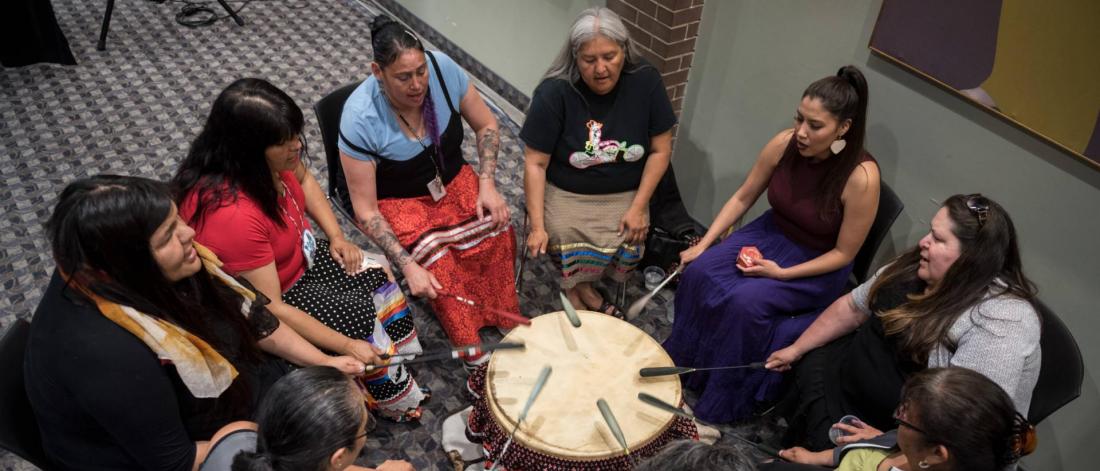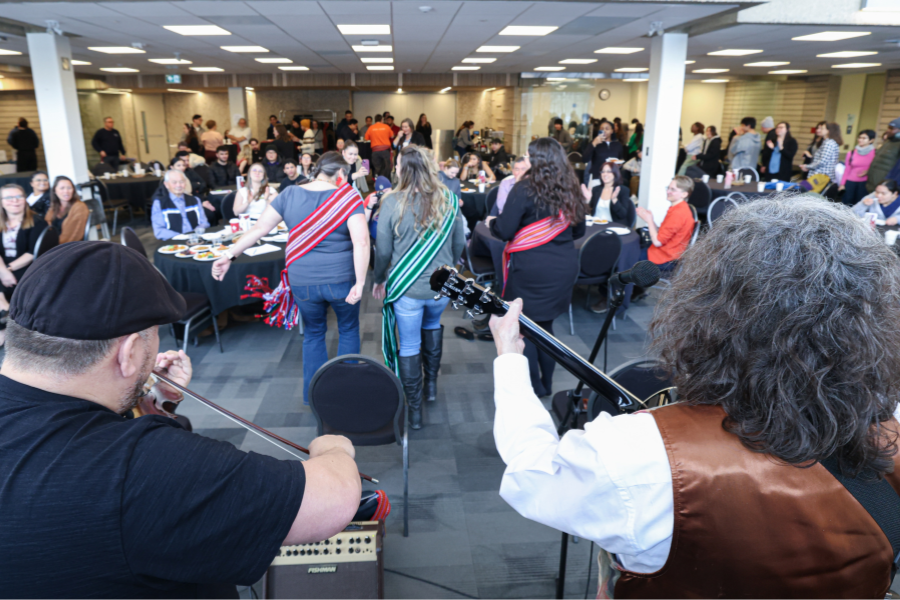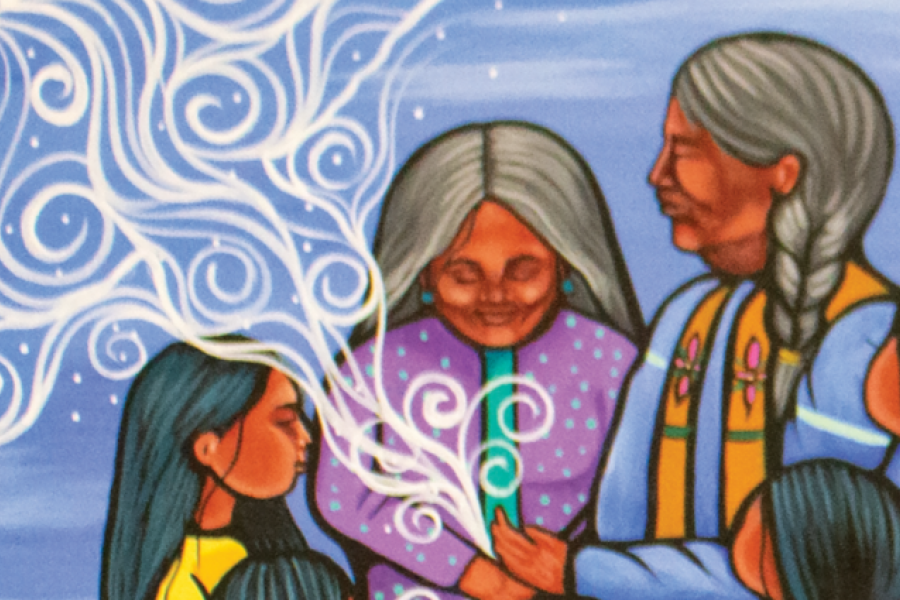1. Extending invitations to Elders - tobacco
Tobacco is an extremely important plant medicine in the Indigenous cultures of the prairies – it is one of our sacred medicines. Tobacco is used to open communication, whether to talk with an Elder to ask questions or when requesting ceremony, or when praying to Creator. When we pass tobacco, we are honouring a tradition that is very old. It is said that it is the leader of our medicines because it comes first. Whatever your views are on tobacco, it is still a sacred medicine to Traditional people.
Elders must be offered tobacco when you ask them to share their knowledge and/or attend an event. The exchange of tobacco is similar to the signing of a contract between two parties: the Elder is agreeing to do what is asked; the one offering the tobacco has obligations to respect the Teachings and the Teacher. The tobacco must be passed prior to the activity/event (as far in advance as possible).
When giving tobacco, place it in front of the Elder and state your request. If you hand it directly to the Elder, you do not give him/her the opportunity to accept or pass on your request – it takes away their choice. It is also okay to state your intention of passing tobacco for a request or question that you have before offering it, this is another way to give an Elder the opportunity to accept the tobacco you are offering, or to guide you in another direction.
It is very important to be specific about your request so that the Elder knows exactly what you are asking.
If the Elder accepts your request, s/he will pick up the tobacco and will then do her/his best to help you. If they cannot fulfill your request, they will say so and not accept the tobacco. (It is perfectly appropriate to ask for a referral if the Elder is unable to comply with your request).
Tobacco can be given in a pouch, wrapped in a piece of cloth, and can sometimes be given in the form of a cigarette. The minimum amount of tobacco is the amount needed to use in a Ceremonial Pipe, but a pouch of tobacco is the most common form. Tobacco is a sacred medicine and only commercial tobacco or tobacco in its natural form (kinikinik) is acceptable. Some people have asked if a mixture of 'healthy' herbs or other medicines can be used instead of tobacco – the answer is NO.
Traditional Teachers/Elders/Medicines/Ceremonies should not be requested if alcohol is present.
Offering tobacco is a protocol most Indigenous Communities follow, but keep in mind not all Indigenous People use this protocol to request things. For example, Inuit have started to adopt this protocol of accepting tobacco for a request they are being ask of, but traditionally Inuit do not use tobacco as a medicine; if you are intending to give an Inuk Elder tobacco, you could also have a small gift.
2. Gifts
Before the modern era, Elders were given food, clothing and other necessities in exchange for their help. It is still acceptable/appropriate to provide the Elder with a gift for sharing their time, knowledge and wisdom. This gift would be given in addition to an honorarium that would remunerate them for their time, travel and efforts.
If you have never given an Elder a gift before, here are a few examples of what is sometimes given as an Elder’s gift:
Please note that a gift does not need to be anything extravagant. You give what you can and what you think would be appreciated.
3. Elder Helper
Always ensure there is a host/escort for the Elder when they have been invited on campus. This Elder Helper is responsible for transportation, parking passes, greeting the Elder, traveling with them to various locations on campus, providing water, coffee, etc. and ensuring that all other protocols are met. Some Elders have a friend or family member who they bring as a helper, while others may be open to the organizer assigning a helper. You may also need to cover per diems for the Elder helper.




